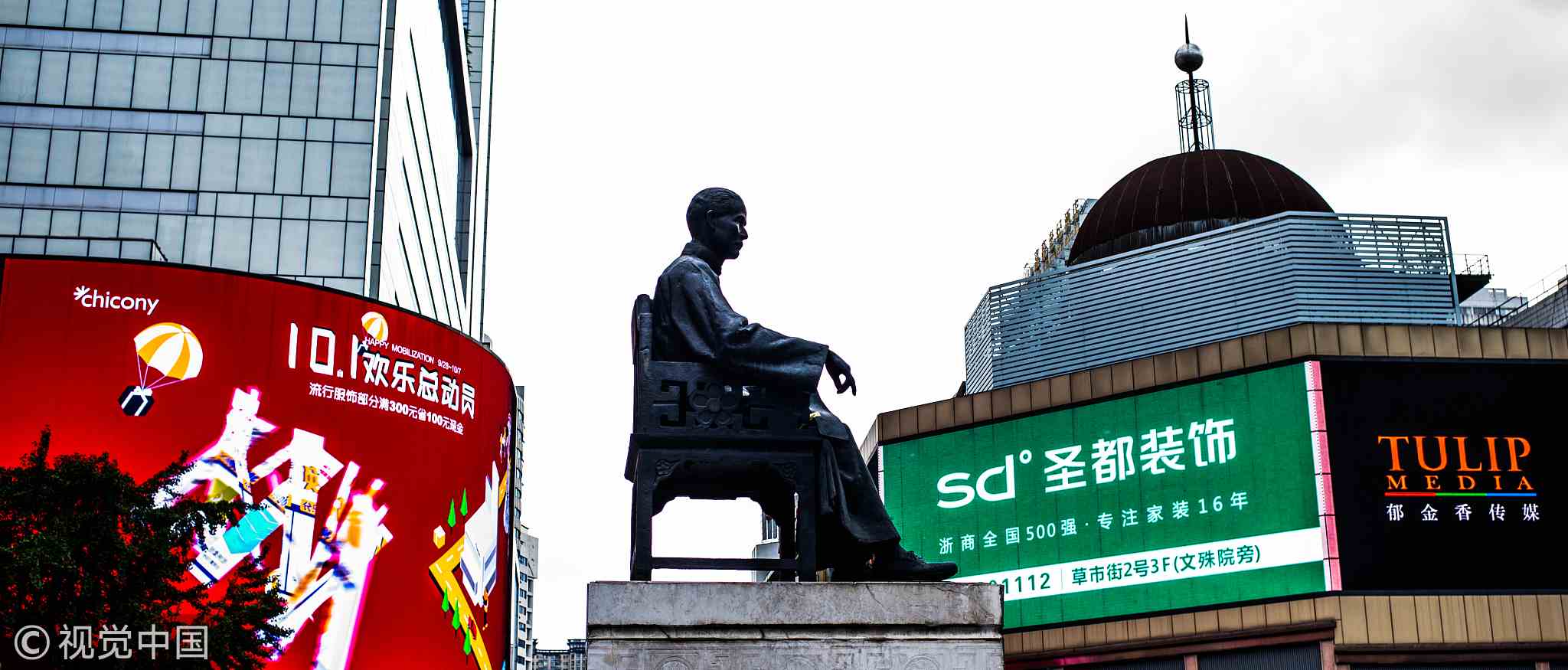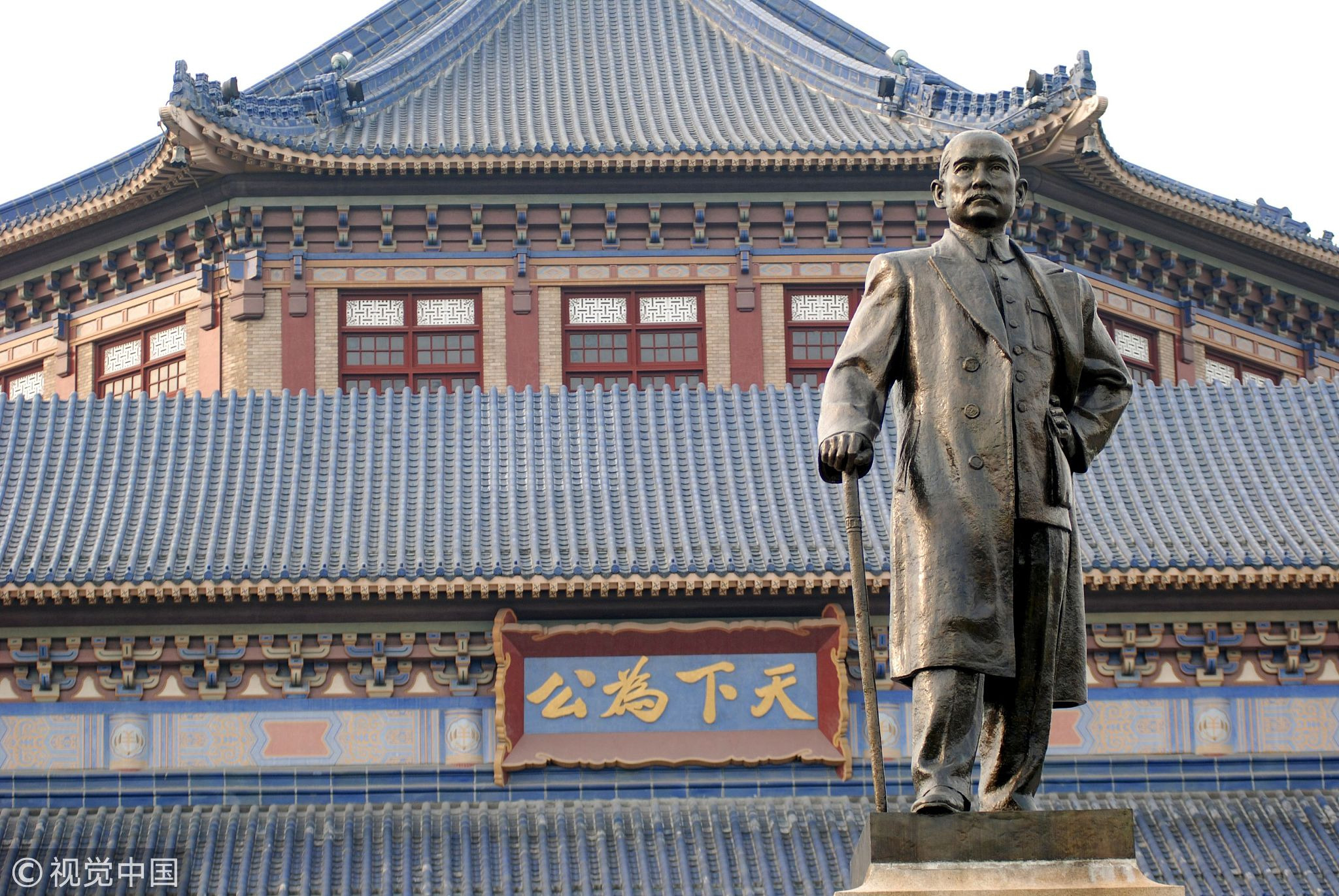
Opinions
11:46, 12-Nov-2018
Opinion: Dr. Sun Yat-sen’s contribution deserves longtime memory and respect
Updated
10:47, 15-Nov-2018
Xia Lu

Editor's note: Xia Lu is an assistant professor of Renmin University of China. The article reflects the author's opinion, and not necessarily the views of CGTN.
History can be tricky. The following generation always has to live with the fact that the predecessor's shadow is too big to avoid. Look at Buzz Aldrin; he set foot on the Moon immediately after Neil Alden Armstrong, the first human to ever step foot on the moon in July 1969.
Today, Dr. Sun Yat-sen, whose birthday is on November 12, immediately after Singles'-Day Shopping Carnival, the world's largest online shopping day.
This year is particularly poignant because it is the tenth edition of the annual event - also known as Double Eleven - since it was launched by Alibaba. Almost all Chinese people know Dr. Sun and his significant contribution to Chinese modern political development, yet few would think of him, think of him fondly, when they have to grasp the chance for a better deal in the days of consumerism.

The statue of Sun Yat-sen sits amid outdoor advertisements in Chengdu, southwest China's Sichuan Province. /VCG Photo
The statue of Sun Yat-sen sits amid outdoor advertisements in Chengdu, southwest China's Sichuan Province. /VCG Photo
Generally speaking, history is consisting of human (individual or collective), human's activities, and the results from these activities, which include both institutions and ideas. In modern Chinese history, Dr. Sun Yat-sen was a great human who firmly and successfully reshaped both institutions and ideas in China by his revolutionary activities.
The most important and far-reaching heritage that Dr. Sun Yat-sen has bestowed to Chinese people is the institutions and thoughts of republicanism. For too long Chinese society has been governed under the imperial-bureaucratic system; as a result, for too long Chinese people have only known who is the ruling dynasty to which they must be subjected to, without knowing that the distinction between public and private and that they can also have a say in public affairs.
The tenet of “the world is for all” (tianxia weigong), advocated by Dr. Sun and engraved on almost all the memorial archways of the China Towns all over the world, still sheds light on our understanding of politics in the present time. Politics is public affairs; it should be managed by state apparatus and officials who only serve the public.

A statue of Sun Yat-sen at the Dr. Sun Yat-sen's Memorial Hall, Guangzhou, south China. /VCG Photo
A statue of Sun Yat-sen at the Dr. Sun Yat-sen's Memorial Hall, Guangzhou, south China. /VCG Photo
Dr. Sun Yat-sen's major contributions also include promoting and preserving national unity under a unified Chinese national identity. During the revolutionary era in the 19th and 20th century, different generations of advanced Chinese elites must solve a combined issue of three words initiated with “I”, that is, independence of Chinese nation from foreign powers' exploitation and arbitrary ravage, improvement of Chinese people's living standards and comprehensive national strength, and inclusion of people from all walks of life into one national identity.
Comparatively, the last one is the most difficult one. Yet, Dr. Sun managed to fulfill it. In early 1925, Dr. Sun, with a clear knowledge of the severity of his cancer, still decided to accept General Feng Yuxiang's invitation and come to Beijing for convening a national assembly.
He made full use of the last time of his life in the promotion of a unified and independent China along the way from south to north by claiming that the path to achieving the great task is abolishing all the unequal treaties, awakening and mobilizing the mass, and allying with foreign nations that would treat us equally. And this is precisely what the Communist Party of China has accomplished in the following revolution.
One hundred and fifty-two years ago, when Dr. Sun Yat-sen was born in south China, he might have never imagined that he would be the one great human that ends the imperial system lasting more than two thousand years in China and establishes the first republic in Asia. With this, he and the great cause that he initiated deserve longtime memory and respect by all Chinese people.
(If you want to contribute and have specific expertise, please contact us at opinions@cgtn.com)

SITEMAP
Copyright © 2018 CGTN. Beijing ICP prepared NO.16065310-3
Copyright © 2018 CGTN. Beijing ICP prepared NO.16065310-3